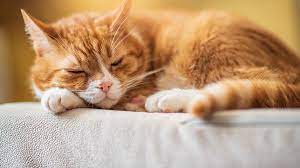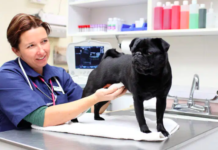Have you ever had the experience of reading a book or doing something quietly in a room, and a few strange sounds suddenly caught your attention? So you walked slowly towards the source of those noises only to find that it was your furry baby happily napping and snoring.
Feline fur babies are popular for their brief cat naps, and yes, they look like cute angels without wings while napping. However, some cat owners find it surprising when their furball snores while chasing a mouse or toy in its sleep.
When cats fall into a deep sleep, they may start snoring. It is very unlikely that your cat snores every time it falls asleep. Snoring is normal unless your kitty is always snoring and is showing various other symptoms associated with potential health conditions.
In times like this, you must consult your vet for medical assistance. Knowing the root cause of excessive snoring helps with treating the issue effectively. Cat insurance NZ helps support your furball with top-notch medical care with little economic hassle.
Consider buying cheap cat insurance in the least, so you are well-equipped to tackle accidents, injuries, and health emergencies. In the meantime, read this article to learn four common reasons why cats snore.
1.Some cats are highly prone to snoring
Some feline fur babies are highly prone to snoring. For instance, if your kitty cat has put on too many kgs, it is more likely to snore. Overweight and obese cats show snoring tendencies more often than their slimmer counterparts. These conditions raise health risks, so you should consider helping your munchkin lose weight if it has crossed the ideal weight for its age, size, and breed.
2.Some sleeping positions trigger snoring
Some cats snore simply because some of their sleeping positions induce noisy breathing. If your cat naps in weird positions regularly, expect to hear its snores.
3.Some cat breeds snore often
Flat-face feline breeds or brachycephalic breeds snore more compared to other cat breeds. For instance, Persian cats and Himalayan cats are two cat breeds that can develop airway syndrome and make more noise while sleeping because of their soft elongated palates and short nasal passages.
4.Some cats snore due to health issues
Apart from snoring, if you notice the below signs and more, consult your vet immediately, as your cat might be silently dealing with deeper health issues.
- Nasal/eye discharge
- Sores on the nose
- Coughing
- Sneezing
- Snoring when awake
- Changes in vocalizations
- Face swelling
- Appetite changes
Watch for changes in your feline’s body language, like extending the head or neck straight to properly inhale air or continuously trying to breathe through the mouth. These actions point to potential respiratory issues, and your furball might have breathing distress and require medical help right away.
Snoring is a symptom of severe health conditions like trauma, asthma, bacterial/viral/fungal infections, inflammation, polyps, cancer, laryngeal paralysis, and foreign objects stuck in the back of the mouth or nose. This is precisely why timely medical intervention is necessary.
Cat insurance in NZ helps manage unexpected vet bills with fewer financial troubles. Contemplate purchasing cheap cat insurance, so your furball gets the medical care it deserves during non routine vet visits without taking a toll on your savings.
































